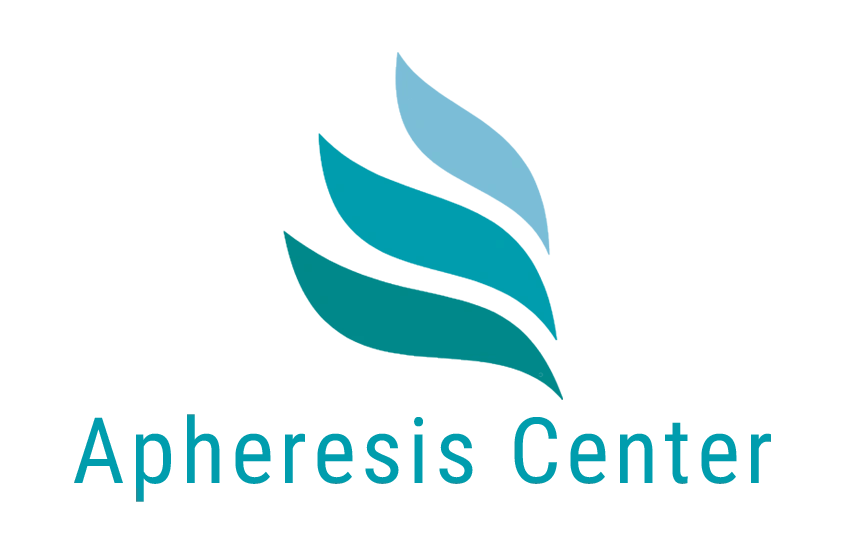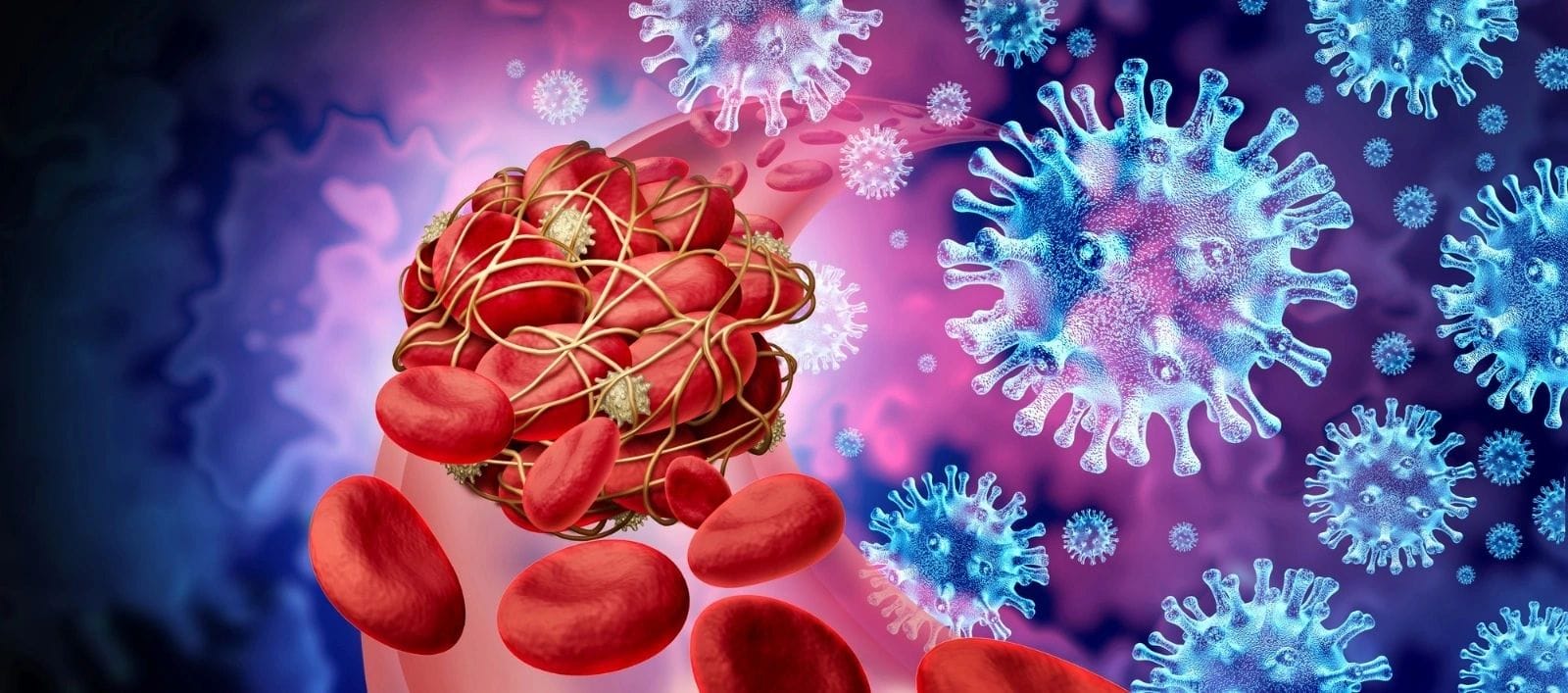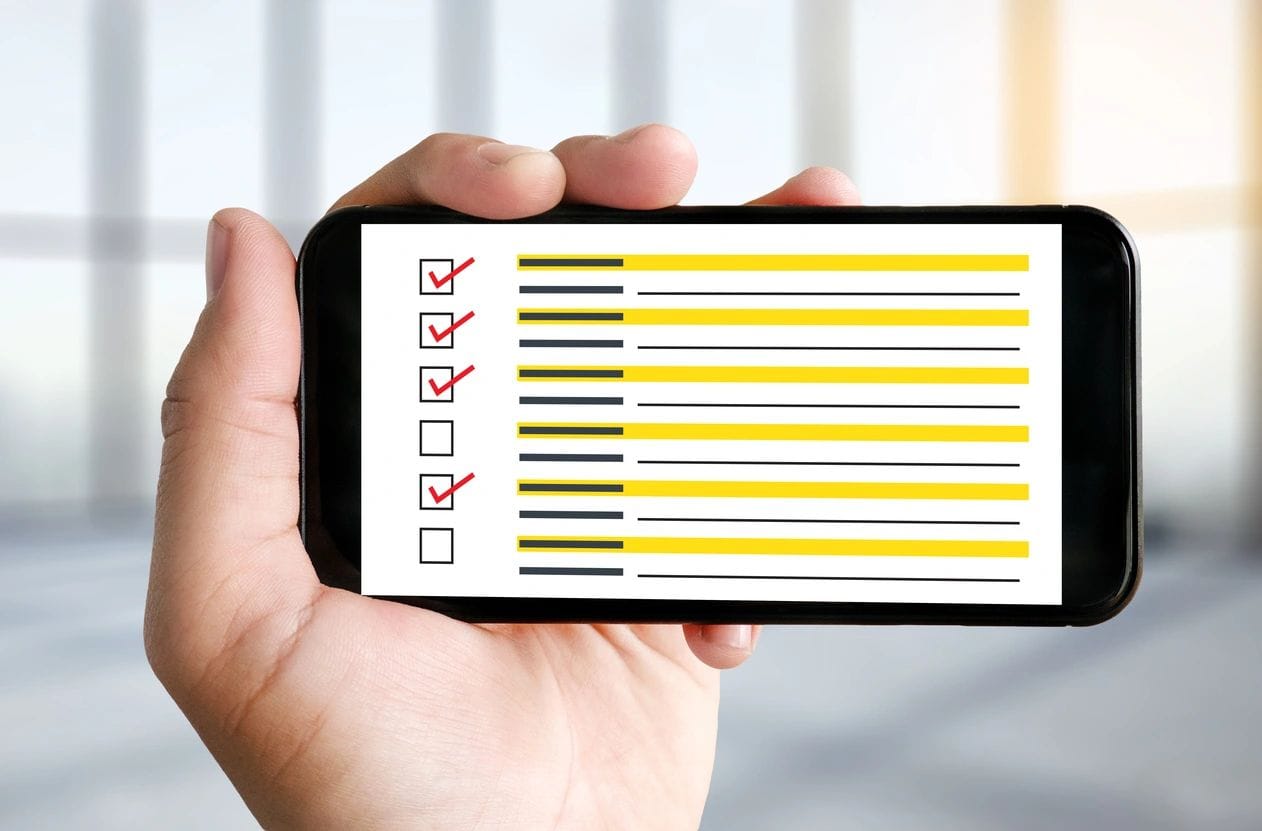Autor: S. Margalit
While the COVID-19 pandemic’s grip has loosened, millions worldwide grapple with long-term effects. A recent JAMA Network report estimates 7% of US adults, or nearly 18 million, experience Long COVID. Scientists pinpoint microscopic blood clots as a potential culprit. I spoke with Markus Klotz, co-founder of the Apheresis Center in Larnaca, Cyprus, and a former Long COVID patient himself, to delve deeper into the condition and their promising treatment protocol.
Markus, many Long COVID patients struggle despite seeming recovery. What’s the cause?
"En palabras sencillas: Como la mayoría de la gente ya sabe, el virus COVID-19 tiene una forma redonda cubierta de púas, se puede imaginar el virus como si fuera un puercoespín. En algunos casos, aunque el paciente se cure de la infección vírica, una cantidad considerable de púas que se desprendieron del cuerpo del virus permanecen en el torrente sanguíneo y el sistema del paciente.
Estos picos quedan atrapados y enredados en una proteína llamada fibrinógeno. Por su nombre se entiende que el fibrinógeno tiene forma de fibra. El fibrinógeno une las plaquetas de la sangre en caso de lesión creando una red de fibras que atan las plaquetas de la sangre y las fijan en una posición estable en el lugar donde se ha producido la lesión.
Once a COVID-19 spike gets caught in a fibrinogen net, it weakens its strength and flexibility. The fibrinogen net gets broken and pieces of it start circulating the blood stream creating fibrin aggregates, so called microclots that researchers have found to cause quite a substantial amount of symptoms. Especially as they include amyloid proteins which makes them extremely hard to dissolve. Of course in many cases there are other processes involved – often downstream of the microclots/hypercoagulation – hyperinflammation, autoimmune processes and neurological issues.”
¿Cómo puedo saber si llevo microclots en la sangre?
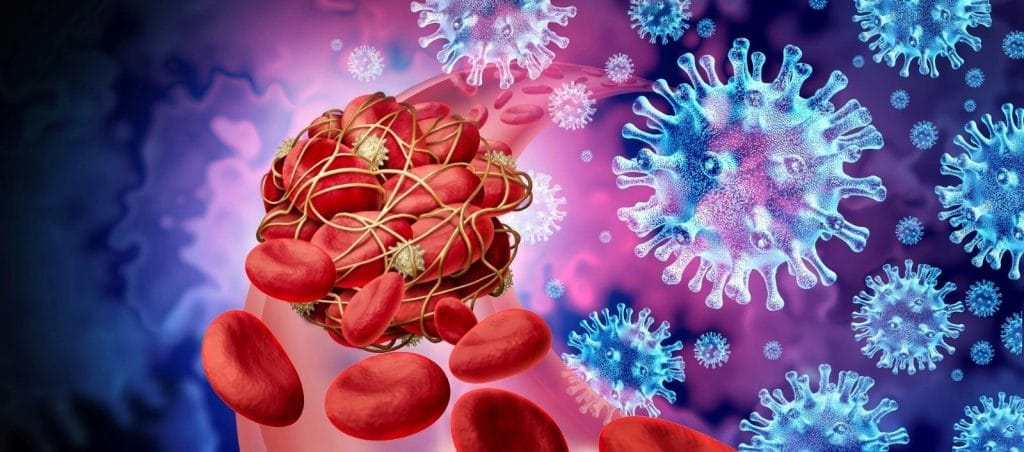
“I recommend you first consult your doctor. There is a few research laboratories that test for microclots and endothelial damage. You can also take the online diagnostic screening questionnaire test available on our website, developed by our medical advisor Dr. Gustavo Aguirre-Chang. By now though we have more accurate molecular diagnostic tests – spike protein persistence tests that show where spike remains in the patients’ system – in the serum, the exosomes or the immune cells.”
¿Cuáles son los síntomas que experimentan los pacientes?
“The National Healthcare Service in the UK (NHS UK) has published a few symptoms like extreme tiredness (fatigue), shortness of breath, problems with your memory and concentration (“brain fog”), heart palpitations, dizziness and joint pain and muscle aches. For so many patients we meet here in our clinic, the symptoms are so severe that they are bedridden close to 23 hours a day, but there is also many that have more mild versions but are still struggling a lot to live a normal life.”
When Markus fell ill at the end of 2020 after contracting Covid and his life was taken away from him through a severe case of Long Covid, he, his family and friends already had lost hope of a recovery when a therapy in Mülheim, Germany brought him back to life again. Dr. Beate Jaeger treated him with H.E.L.P. Apheresis for Long Covid. He was patient Nr. 14 in her published case study.
¿Podría compartir con nuestros lectores su experiencia personal con Long COVID?
“I was bedridden, constantly fatigued, with terrible muscle aches. The slightest exertion left me breathless, and my mind felt perpetually foggy. I couldn’t even watch TV or read the news. Depression and anxiety weighed heavily. No doctor could diagnose or offer any treatment. Joining Dr. Jaeger’s H.E.L.P. Apheresis study became my lifeline “
After his recovery, Markus took upon himself a mission to make the treatment available for more patients and together with his best friends Constantinos Georgiou and Silke Fischer with the support of Dr. Beate Jaeger opened the Apheresis Center in Larnaca with Dr. Irina Pavlik Marangos, who leads the medical team as the Medical Director. Utilizing their clinical experience and cooperating with doctors and researchers from all over the world, they developed ‘The Cyprus Protocol’, a combination therapy to treat Long COVID and other chronic conditions”
Markus, ¿qué hace que la terapia combinada con H.E.L.P. Aféresis sea tan eficaz en el tratamiento de pacientes con COVID prolongada?
"En todo el mundo se utilizan habitualmente procedimientos de aféresis para separar los distintos componentes de la sangre. Por ejemplo, durante la donación de plaquetas, el donante se conecta a una máquina de aféresis que filtra las plaquetas y deja que el resto de los componentes de la sangre vuelvan al torrente sanguíneo. Funciona como un colador, cuanto más pequeños son los agujeros, más componentes puede filtrar. Desafortunadamente, las proteínas virales como COVID-19 y microclots son diminutas y pasan a través de los filtros comunes de las máquinas de aféresis.
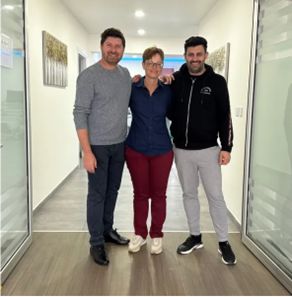
However, H.E.L.P. Apheresis works differently. Instead of using mechanical components to filter the blood, H.E.L.P. Apheresis cleans the blood using several chemical solutions and processes, literally making the machine a “live laboratory”. First it separates the plasma from the rest of the blood. Then injecting an acetate buffer it turns the plasma’s acidity level to 5,2 pH, creating an environment in which spike proteins, pathogenic proteins and microclots and other toxins and pathogens irreversibly bind to the now injected heparan sulfate, a form of heparin. This process is called precipitation – the solidified ‘precipitate’ remains in a filter-like structure (precipitation filter) with a surface size of over two football fields. The clean plasma is then going through a counter-dialysis with bicarbonate to normalise the pH value again and after that through ultrafiltration/a heparin adsorber and is finally warmed up to body temperature and returned to the bloodstream together the rest of the blood components.
Most forms of Apheresis procedures are very different and therefore less efficient – a selective absorber or precipitation seems to be key.”
Y H.E.L.P. ¿Aféresis ayuda realmente?
"Observamos una tasa de éxito del 80% aquí mismo, en la clínica. Incluso entre los pacientes que por cualquier motivo no pueden tomar todas las tandas de aféresis recomendadas en H.E.L.P. observamos una mejora significativa. Muchos pacientes informan de importantes saltos de recuperación cuando vuelven a casa. Todo depende de la gravedad de la afección".
Debo decir que Markus habla con pasión sobre Long COVID y H.E.L.P. Apheresis, pero cuando le hice la siguiente pregunta realmente brilló.
Pero H.E.L.P. ¿La aféresis no es el único tratamiento con el que trata a los pacientes en la clínica?
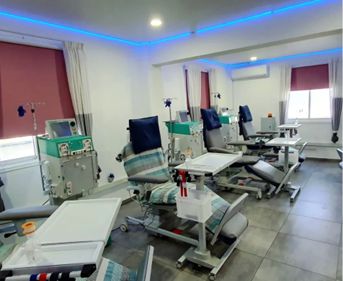
“H.E.L.P. is the crown jewel of the treatment as it is the core part of ‘The Cyprus Protocol’ we use in the clinic. It’s a combination of several different therapies designed to clean the blood from microclots, support the recovery process and provide the patient with means to prevent the next infection.
It includes clinical nutrition supervision, IV therapy, antiviral medications, IVIG IgM enhanced therapy, hyperthermia, hyperbaric oxygen therapy, immunoadsorption therapy and post treatment support by a health coach. Each treatment plan is tailored by Dr. Irina Pavlik Marangos and our clinical nutritionist and clinical director Chryso Zorbas. While not every patient will be undergoing all the treatments, specific combinations of some of them are ‘doing wonders’ for Long COVID and Post Vac, as well as for chronic illness patients”
Tengo entendido que se ven resultados destacados, así que ¿por qué no ha sido aprobado aún el tratamiento por ningún organismo sanitario de todo el mundo?
"Los estudios clínicos de Long Covid no han hecho más que empezar; si, por ejemplo, miras con atención el sitio web del NHS UK, verás que sólo ofrecen ayuda para controlar los síntomas, no son realmente un tratamiento ni una cura. Esperamos que los ensayos clínicos y los procedimientos de aprobación duren al menos hasta 2030. ¿Qué deben hacer los pacientes de Long COVID hasta 2030? ¿Tumbarse en la cama y esperar?".
“Every treatment we offer our patients is clinically approved by health agencies around the world and considered as safe, they are just not labelled as ‘Long Covid or Post Vac treatments’ yet.”
Quiere hacer más accesibles los tratamientos, ¿por qué Chipre entonces?
“Well, the answer lies in your question. The operating costs for a clinic like ours are higher in the rest of the European Union or in the USA for example, thus letting us provide the treatments at a better cost. 70 direct flights and English language are just two more of the long list of reasons we chose Cyprus. The island itself has a high standard private health infrastructure. I have to say that the beautiful view of the Mediterranean and the sunny blue sky also help our patients recovery. I like what Stephen, one of our patients said: ‘We managed to blend German efficiency and Cypriot hospitality at our clinic.”
Por último, Markus, ¿hay algo que quieras decir a otros pacientes con COVID prolongado y postvacacional o con enfermedades crónicas?
Markus se detiene unos segundos a pensar y responde con expresión emocionada
“For me the worst part was the mental part, not knowing what you really have is devastating, but my message as a former patient to other patients is don’t lose hope! Speak to your doctor, ask for available treatments and don’t lose hope. We also provide free consultation to patients from all over the world and you are welcome to do that too.”
